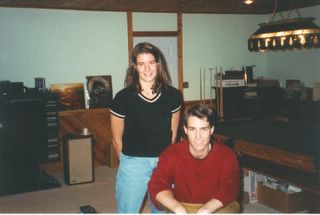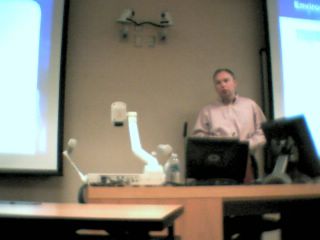It has been a while since my last book review. I just finished up "A Stake in the Outcome" by Jack Stack.
Overview
A Stake in the Outcome covers the topic of the effective use of company ownership by the employees as a method to promote optimization and innovation in the business. The foundation of the concept lies in the idea of getting employees to act and think like owners. By truly making employees owners, either through direct stock sale or ESOP programs, employees will be incited to learn the business game and begin making decisions that are healthy for the company. The book covers several stories relating how Jack Stack and his business, SRC, first got off the ground and through the lifetime of the business. Along the way, he discusses several of the benefits and potential pitfalls of employee ownership, and discusses the steps that SRC took to manage those issues.
My Thoughts
It took me a long time to read this book. The book is only 266 pages in length, and I started in January. I had several issues with this one though. I'll try to be fair.
Firstly, this book is built around the experiences of one man and one business: Jack Stack and SRC. Additional anecdotes are included, but by in large this is the story of how Jack Stack transformed a division of a larger corporation into a startup company, and built that startup into a conglomerate of related businesses. As such, the stories do not relate well to the environment at my work. At SRC, Jack Stack was surrounded by little motivated, little educated employees who were accustomed to a corporate method of doing business. Stack had a great deal of work ahead of him to get his people to stop focusing on doing the work in front of them, and start thinking about what is best for the company. My office, by contrast, is full of highly educated, highly motivated people who have not become dulled by the corporate experience. One of the most difficult tasks that Stack covers was his need to both motivate his people and educate them on how business works. Our staff have the education and reasoning power to appreciate basic business concepts. Our projects teams are small, and our relationships with our customers are intimate. Often times the salesperson, engineer, and customer service are all the same person. Our heirarchy is flat, and there are no divisions for political and beaurocratic in-fighting to take place in. Due to the disparity between the environments of my company and SRC, it is difficult to take Stack's stories and see how they apply to our business.
Secondly, I came to vehemently dislike Jack Stack as I read through this book. His attitude comes through loud and clear in both the way the book reads, and the attitude that he takes. In the very first chapter he makes clear that he puts no stock in formal education, and feels that the only true learning takes place through experience. He relates several stories about how SRC and his board coped with pitfalls of starting a business, and how some of the issues he would need to deal with as an owner seemed to hit him out of nowhere. As an MBA student, I feel compelled to defend my quest for this so-called "worthless" formal education. In several cases, problems he faced and took months to handle are discussed in a couple of chapters of the text books I've read for class. It would seem clear to me that if Stack had had the sense to at least investigate some type of formal education prior to setting out on this adventure, he would have benefitted greatly. I appreciate that experience is the greatest teacher of all, but Stack really put me off with this attitude that resonates throughout the book. It is part of the reason it took me so long to finish this one.
To be fair, there is some very good knowledge in this book that is applicable at work. Once I was able to put aside my dislike of the author and parse through the stories, there are some nuggets of experience that we can do well to take note of. Of those, I believe that Diversification is the most immediately applicable, and Succession Planning is something you can never plan too early for. Stack goes into great detail about how his business was overly reliant on a single customer, and when the customer pulled the plug it sent SRC into a tail-spin. We've been in that unfortunate position as well, with major customers providing a large percentage of our work, and then taking that work away.
The more I read of the book, the more I began to respect Jack Stack as a CEO. He has a great attitude and personality for the position. He is bull-headed, he loves change, and he is constantly challenging himself extend into new areas and improve the business. Add to this his phenomenal commitment to his people, and you have a great recipe for a corporate visionary. Unfortunately, these qualities do not lend themselves to being a good teacher. There are several cases in the book in which Stack makes a statement to the effect of "I've given you this incredible opportunity, why can't you see it for what it is?". The greatest teachers are able to get their students to discover new things on their own, and guide the process of learning. Stack, on the other hand, rams it down his students throats. It makes it very difficult to read the book and come away with an "aha, now I understand" feeling.
Conclusion
Although Stack is clearly an incredible corporate leader, it is difficult to gain an appreciation of the benefits to be gained through an employee ownership program by reading this book. The scenario at SRC is so different from the one at my work that it is difficult to empathize and learn from the stories. Our staff are highly educated, and able to quickly grasp business concepts. I feel that there are better texts available on this subject that would be more effective.
Of course, this is just one opinion. I would appreciate any feedback from other folks that have read this one.














